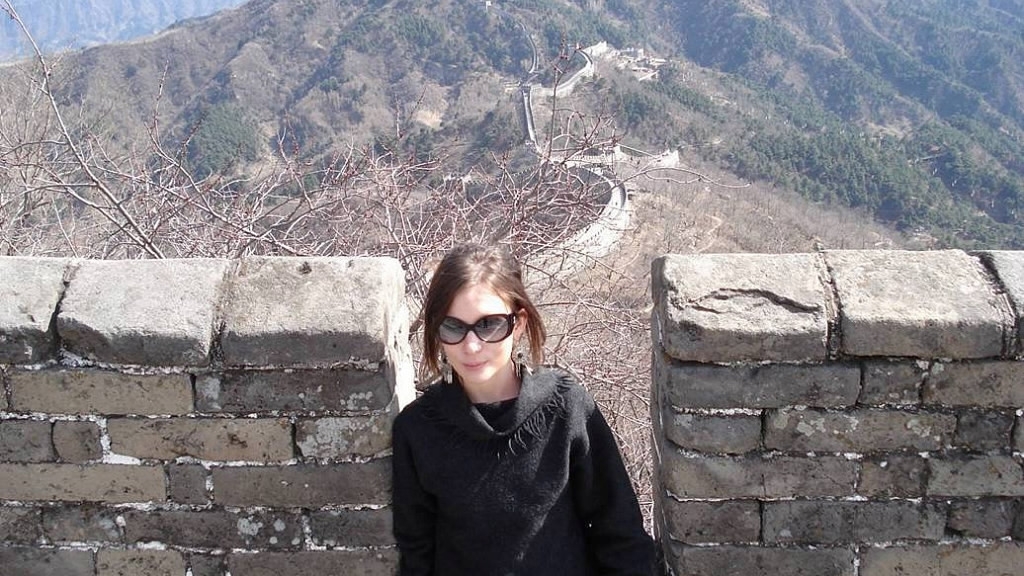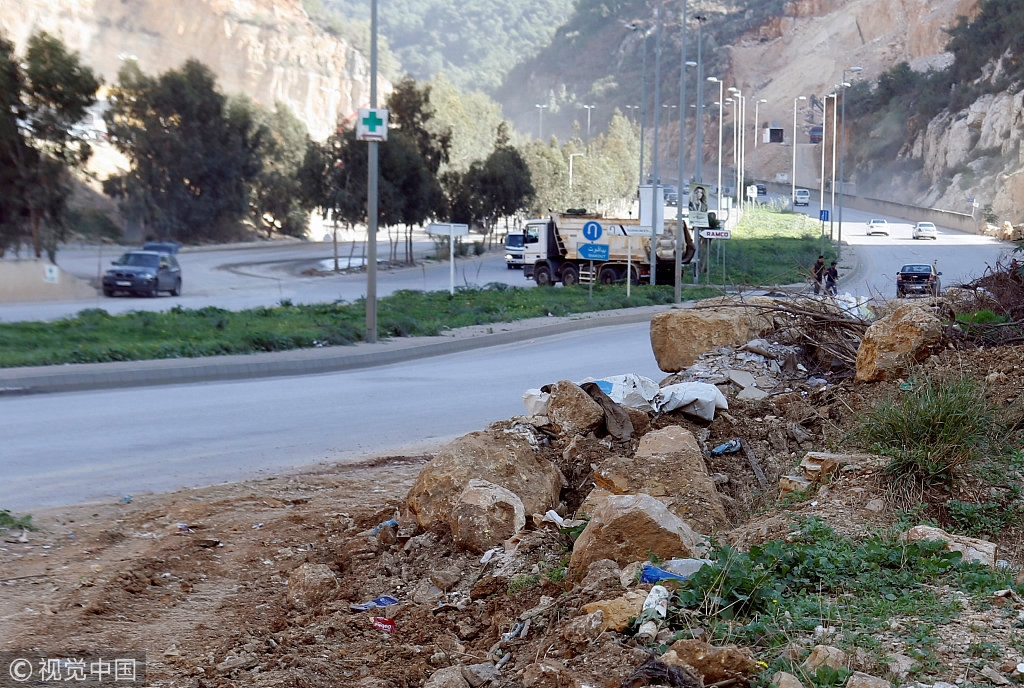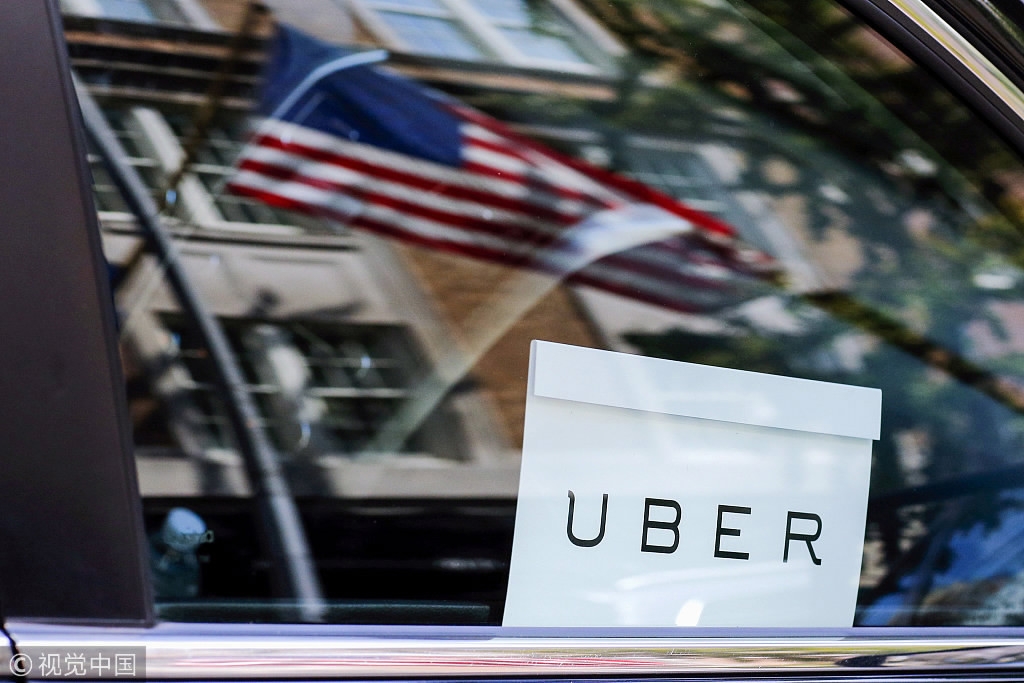
World
16:39, 19-Dec-2017
Uber driver with a record confesses to killing passenger in Beirut
Nadim Diab

A Lebanese Uber driver with a criminal record has confessed to the murder of a British woman, whose body was found on a highway on the outskirts of Beirut over the weekend. The chilling case has cast doubt again on the driver vetting process of the company, already under flak for its safety record, amid calls for the Lebanese authorities to suspend the ride-hailing service in the country.
Security authorities on Monday said the 41-year-old suspect, who had been arrested for drug use in the past, has confessed to killing Rebecca Dykes, a worker at the British Embassy in Beirut.
Uber confirmed that the assailant was a driver with the company, but refrained from disclosing his name or how long he had been working for the service. Media identified the suspect as Tarek Hesso Harb and reported that he joined Uber just two months ago.

Handout picture of Rebecca Dykes, who worked at the British Embassy in Beirut. The picture was supplied by her family, London, December 18, 2017. /VCG Photo
Handout picture of Rebecca Dykes, who worked at the British Embassy in Beirut. The picture was supplied by her family, London, December 18, 2017. /VCG Photo
Raped and strangled
The suspect was arrested in the wee hours of Sunday morning, after Lebanese security services used traffic management surveillance cameras on the highway, where the body of Dykes was found a day earlier, to trace the license plate of his vehicle.
Dykes is believed to have gotten into a black 4x4-style taxi she ordered late on Friday using Uber app. She had been at a colleague’s farewell party in Mar Mikhael, a nightlife hotspot in Beirut, and was heading to her apartment in nearby Achrafiyeh.
A security source said the driver did not drop her at her destination, and instead took a highway leading out of Beirut to the Metn district, east of the capital. Somewhere along the way, he reportedly assaulted her sexually, and then strangled her with a rope, before dumping her body next to the road in Nahr El-Mot area and throwing her personal belonging in a dumpster.
The body was found on Saturday morning but was not identified until later in the day after the British embassy contacted the Lebanese authorities to report that one of their staff had gone missing.
Dykes had failed to board her early morning plane from Rafik Hariri International Airport back to the UK, where she planned to spend Christmas, and her parents alarmed the British diplomatic mission in Beirut, according to local broadcaster LBCI.

Screenshot of a post published by UK Ambassador to Lebanon Hugo Shorter on Twitter on December 17, 2017.
Screenshot of a post published by UK Ambassador to Lebanon Hugo Shorter on Twitter on December 17, 2017.
"The whole embassy is deeply shocked, saddened by this news. My thoughts are with Becky’s family, friends and colleagues for their tragic loss," the UK Ambassador to Lebanon, Hugo Shorter, wrote on Twitter on Sunday.
Dykes was working at the Department for International Development and arrived in Beirut in January this year.
A convicted driver
The murder of Dykes at the hands of an Uber driver is the latest episode in a series of disturbing cases around the world that has called into question the service’s ability to ensure passenger safety and the quality of its driver background checks.
Reuters quoted an unnamed Lebanese security source as saying that the suspect had been behind bars between 2015 and this year for drug-related offenses. The source noted that this might not show up on his judicial record.
Uber spokesperson Harry Porter said the service only uses taxi drivers with a commercial license, clean background check and judicial records. He maintained that the Lebanese authorities are responsible for screening private hire drivers and granting them commercial licenses.
Porter argued that had any convictions appeared during the background check of the suspect, he would not have been licensed.

Cars pass near the area where British embassy worker Rebecca Dykes' body is believed to have been found, by a main road outside Beirut, Lebanon, December 18, 2017. /VCG Photo
Cars pass near the area where British embassy worker Rebecca Dykes' body is believed to have been found, by a main road outside Beirut, Lebanon, December 18, 2017. /VCG Photo
Reuters cited another security source as saying that the suspect also had a criminal record, without giving any details.
Uber under fire
The San Francisco-based private car hire operator is already in the hot seat over concerns about how it vets its drivers.
Uber had its license to operate in London revoked in September with the Transport of London saying the company is not "fit and proper" and whose conduct showed a "lack of corporate responsibility". Its operations were also temporarily suspended in the northern English city of Sheffield earlier this month, and the decision over whether the service can operate in the city is due to be out by early next year.
In India, the company’s system for screening its driver drew scrutiny three years ago after a female passenger was raped by the driver of the ride she ordered via the app. The driver admitted to having sexually assaulted several women, leading the service to announce it was rethinking its vetting procedures.
And in Texas, an investigation by Reuters found that the system Uber used to evaluate its prospective drivers failed to flag those with criminal records including murder and assault and 17 other offenses.
Uber rolled out its service in Lebanon in 2014, but it soon hit a speed bump after the Taxi Companies Syndicate in the country accused it of working illegally and violating local regulations.

An Uber sign is seen in a car in New York, US, June 30, 2015. /VCG Photo
An Uber sign is seen in a car in New York, US, June 30, 2015. /VCG Photo
A fresh chorus of criticism was leveled against Uber after details about Dykes’ murder trickled out.
Chief of the Taxi Companies Syndicate Charles Abou Harb denounced the crime and reiterated his call to "prevent such unlicensed companies from working on the Lebanese territories to avoid new crimes".
Abou Harb warned the public against using and trusting companies like Uber, alleging that "some of their plates are forged and most of their drivers non-Lebanese".
The Uber driver who confessed to killing Dykes is Lebanese.
Dykes had worked for the Foreign and Commonwealth Office since 2010 and had been deployed to Libya and Iraq.
"Becky had a love of travelling, and was passionate about helping people," read a statement issued by her family on Monday. "She always wanted to make the world a better place – her humanitarian work in Beirut was testament to that."
She also spent some time in south China’s Hong Kong Special Administrative Region, teaching English to teenagers for four years.
(With input from Reuters)

SITEMAP
Copyright © 2018 CGTN. Beijing ICP prepared NO.16065310-3
Copyright © 2018 CGTN. Beijing ICP prepared NO.16065310-3